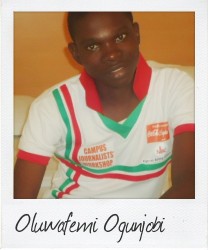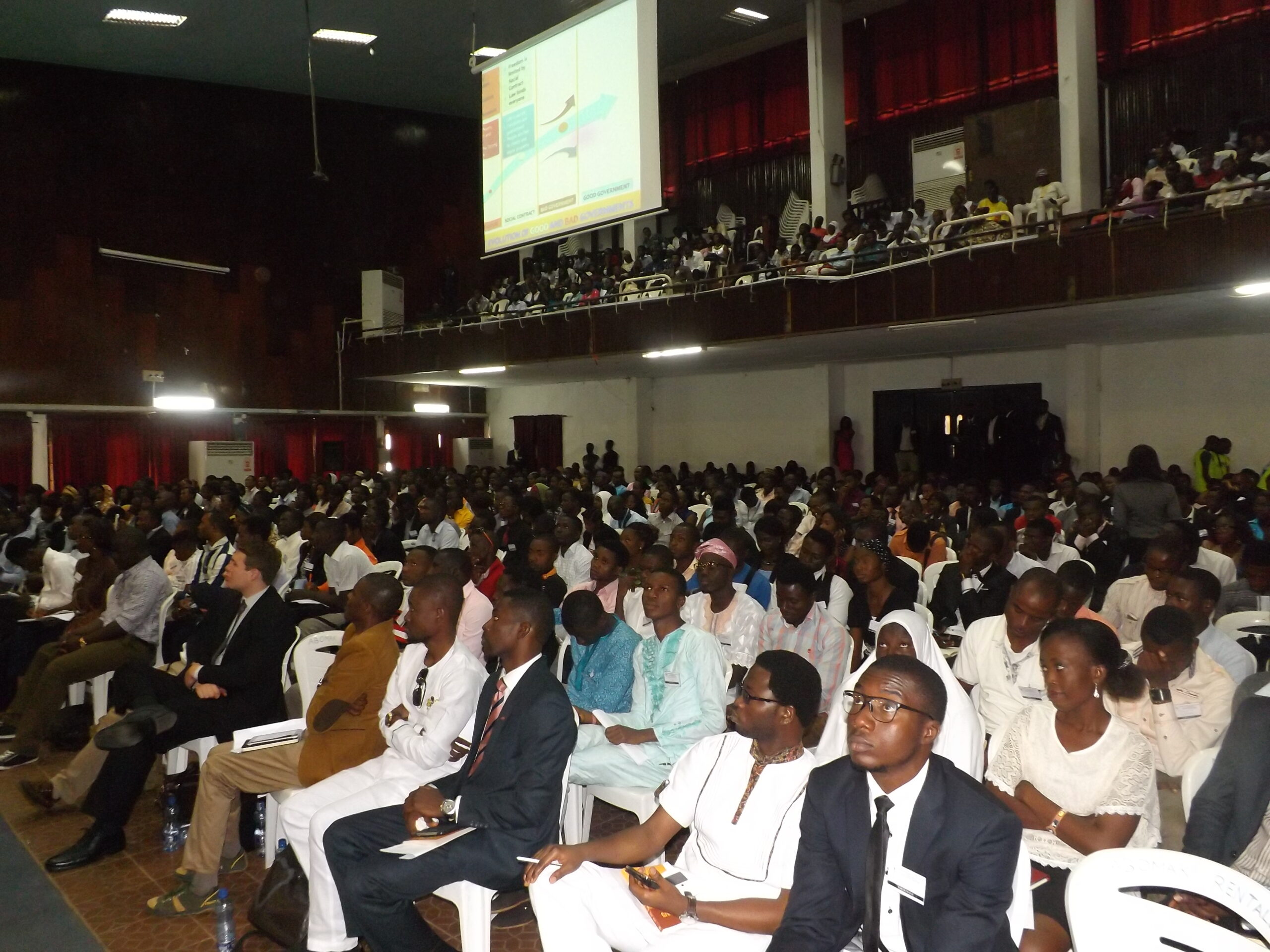"For their continent they are new Soldiers of Liberty"
August 7 To take Africa out of the doldrums through developmental policies, youths from various parts of Africa gathered to discuss the continent’s age-long problems: Why is Africa poor? Why is it a backward continent? Oluwafemi Ogunjobi, 21, a Commonwealth Correspondent from Gbongan in Nigeria reports on the first African Students For Liberty Conference.
To take Africa out of the doldrums through developmental policies, youths from various parts of Africa gathered to discuss the continent’s age-long problems: Why is Africa poor? Why is it a backward continent? Oluwafemi Ogunjobi, 21, a Commonwealth Correspondent from Gbongan in Nigeria reports on the first African Students For Liberty Conference.
Students were already discussing in groups outside the conference venue at the University of Ibadan, Nigeria, before the event started. It was written on their faces that they were anxious to chart a new course for peace, liberty and prosperity in Africa.
The group is an offshoot of Students For Liberty (SFL), a non-profit organization aimed at empowering students to become leaders and change agents in their communities.
Resource persons at the event were pro-liberty speakers, including a social media entrepreneur and blogger, and a former law-maker and writer.
Dr. Wale Okediran spoke on ‘The Role of Literature in Sustainable Democracy and Good Governance’, explaining the interplay between literature and politics. Creative writers in Africa have over the years played very important roles in the process of governance both in Africa and globally.
“And thus, the writer has taken on the role of social critic or the conscience of the nation and world,” he said.
Okediran said Nigeria has a deluge of writers who continue to send strident political messages through their works. Wole Soyinka, Chinua Achebe, Femi Osofisan, Niyi Osundare, Festus Iyayi, Seffi Attah are just some of the large group of Nigerian writers who are never tired of criticising the powers that be.
The former law-maker made reference to his widely acclaimed book, ‘Tenants of the House’, where politics and social issues are strong themes. He charged youngsters to get involved in public service or politics and not to limit their involvement to their profession alone.
“Be engaged, active and value-driven citizens in everything you do,” he concluded.
Alexander McCobin, who spoke on ‘Students For Liberty and the Global Movement for Liberty’ condemned political systems that do not lead social change but respond to the incentives.
“Liberty has come a long way over the course of human history, and if we want to see changes in the world, we have to see it ourselves,” he said.
He stimulated the students to rise as leaders in their nation, changing lives through their ideas, saying leaders see the end as the most valuable; their values define them more than temporal pleasures.
It was not all lectures. There were interesting drama renditions and also the #BringBackOurGirls
Drawing on his experience as a former member of the House of Representatives, Farouk Adamu Aliyu spoke on ‘The Importance of Rule of Law’ in Nigeria’s development.
“Unlike the rule of person, the rule of law postulates that societies must not be subjected to the whims and caprices of individuals who are likely to manipulate social order to benefit their interests, prejudices, and preferences but that all members of society must be governed by a predetermined set of laws established by members of the society through democratic processes and enshrined in the judicial processes of the society,” he said.
Does the law rule in Nigeria? Hon. Aliyu said decades of military rule in Nigeria predictably saw the country suffer a wave of executive lawlessness, human rights abuses and other manifestations of disregard for the rule of law. The return to civilian rule in 1999 gave many people a sense of hope that democracy would guarantee the rule of law and restore social order. The Nigerian constitution itself affirms the supremacy of the law.
Yet in many spheres of the economy, Hon. Aliyu said it is safe to say that after 15 years of civilian rule, it remains highly debatable whether the rule of law is a reality in Nigeria. That failure has greatly contributed to our slow progress as a nation.
“The supremacy of the law is not a luxury that democracy offers; it is a necessity upon which all other democratic principles stand. Justice for all citizens guarantees peaceful coexistence, harmony and stability. These are in turn critical factors for economic and social development. Whether our nation will rise or fall, depends on our ability and willingness to believe and demonstrate that no man or government is above the law,” he said.
Japheth Omojuwa, a social critic and blogger explained that humanity has not had it as good as in the age of social media. He told the youngsters that the power to get and create wealth belongs to them, and doors of endless possibilities are open. He told the youngsters that they need the internet and social media to propagate the ideas of liberty, as it will birth technological innovations across Africa.
As new Soldiers of Liberty in Africa, he encouraged them to getacquainted with knowledge, seek synergy and alliances for the entire continent and the world at large.
…………………………………………………………………………………………………
About me: I am a purpose-driven Nigerian, student, freelance writer, and youth development advocate. I am continuously involved in productive activities that affect human lives, purpose and dignity.
I am passionate about writing. I seek to bring global headliners together through it, and equally to demonstrate how passionate commitment to excellent reporting and storytelling makes a difference in the lives of people everywhere. I also love travelling and playing soccer.
…………………………………………………………………………………………………
Opinions expressed in this article are those of the author and do not necessarily represent the views of the Commonwealth Youth Programme. Articles are published in a spirit of dialogue, respect and understanding. If you disagree, why not submit a response?
To learn more about becoming a Commonwealth Correspondent please visit:
http://www.yourcommonwealth.org/submit-articles/commonwealthcorrespondents/
…………………………………………………………………………………………………




